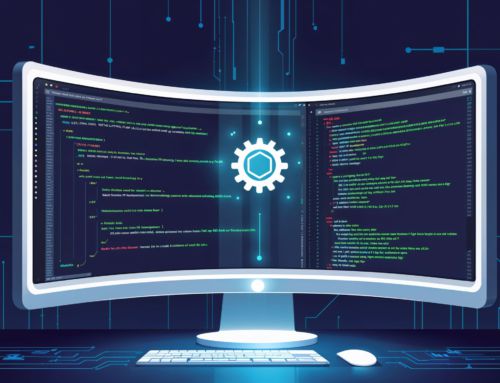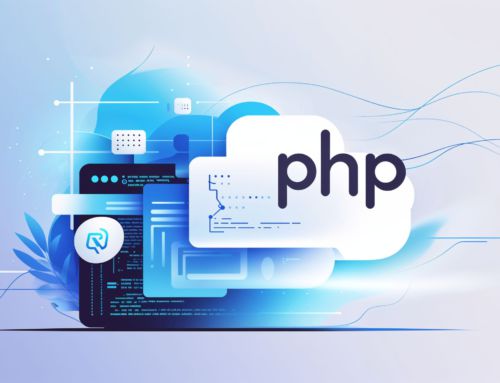Why PHP Remains a Popular Yet Controversial Programming Language Today
When it comes to web development, few programming languages stir up as much debate as PHP. Some developers love it for its simplicity and efficiency, while others criticize its outdated practices. Yet, despite the ongoing controversy, PHP continues to power a massive portion of the internet. But why is PHP still relevant in today’s fast-changing tech landscape? Let’s break it down.
—
What Is PHP, and Why Was It Created?
PHP (short for Hypertext Preprocessor) was created by Rasmus Lerdorf in 1994. Originally, it was a simple tool for tracking website visits, but it quickly evolved into a full-fledged scripting language designed for web development.
What made PHP stand out was its ability to generate dynamic web pages easily. Unlike static HTML, PHP allows web developers to create websites that pull information from databases, making sites more interactive and functional. Large-scale websites like Facebook, Wikipedia, and WordPress have all relied on PHP at some point in their development.
But despite its widespread adoption, many developers today either love or hate PHP. Why does this divide exist?
—
Why Do Developers Still Use PHP?
PHP may not be the shiniest new language on the block, but there are plenty of reasons it remains a go-to choice for web developers.
1. PHP Is Beginner-Friendly
If you’re just starting with web development, PHP is one of the easiest languages to learn. Its simple syntax and flexibility make it accessible to newcomers who want to build websites without diving into complex programming concepts. Unlike languages that require extensive setup, PHP works right out of the box with most web servers.
2. Massive Community Support
With millions of developers using PHP worldwide, there’s a wealth of forums, tutorials, and resources available. If you run into a problem, chances are someone else has already found a solution and shared it online.
3. Highly Efficient for Web Development
PHP was built with the web in mind. It integrates seamlessly with databases like MySQL and runs efficiently on most hosting platforms. Thanks to frameworks like Laravel, Symfony, and CodeIgniter, PHP development has become even more streamlined, leading to more secure and improved coding practices.
4. PHP Powers Major Platforms
A huge number of content management systems (CMS) and eCommerce platforms rely on PHP, including:
- WordPress: The world’s most popular CMS, running about 40% of all websites.
- Drupal: A preferred choice for enterprise-level sites.
- Magento: A leading eCommerce platform.
With so many essential platforms running on PHP, the demand for PHP developers isn’t going away anytime soon.
—
Why Is PHP Controversial?
While PHP has its advantages, it’s not without its flaws. Several complaints from developers keep the debate alive.
1. Inconsistent Syntax and Design
PHP evolved rapidly, leading to inconsistencies in its syntax and function naming. Some methods follow different conventions, making the language feel less structured compared to modern alternatives like Python or JavaScript. This has led developers to criticize PHP as an incohesive language.
2. Security Concerns
PHP has had its fair share of security vulnerabilities in the past. Many of these issues stem from poor coding practices rather than the language itself, but they have still made developers skeptical. However, recent versions of PHP (starting from PHP 7) have introduced stronger security measures and improved performance.
3. Competition from Modern Languages
With newer languages like Node.js, Python, and Ruby on Rails offering more modern approaches to web development, some developers prefer to move away from PHP. Frameworks like Django (for Python) or Express.js (for Node.js) provide similar functionality with arguably better design structures.
—
How PHP Is Evolving to Stay Relevant
Despite its criticisms, PHP has continued to evolve, proving that it’s still a force in web development.
1. Performance Improvements with PHP 7 and Beyond
PHP 7 brought massive performance improvements, making it nearly twice as fast as previous versions. With PHP 8, even more enhancements, such as the Just-In-Time (JIT) compiler, have made PHP-backed websites load even faster.
2. Stronger Security Features
New PHP versions have improved built-in security measures, reducing vulnerabilities. Additionally, modern PHP frameworks like Laravel offer security features by default, encouraging better coding practices.
3. Active Development and Support
PHP remains actively maintained, with regular updates and improvements from the developer community. Major tech companies like Automattic (the company behind WordPress) continue to invest in PHP, ensuring its place in the industry.
—
Should You Learn PHP in 2024?
If you’re considering learning PHP, you might be wondering whether it’s worth your time. The truth is, PHP still has a strong demand in the job market, thanks to its role in powering major websites and CMS platforms. If you’re aiming for a career in web development, understanding PHP can be a valuable skill, particularly for backend development and WordPress-related projects.
However, it’s wise to diversify your skills. Many modern web projects use a combination of **PHP, JavaScript, and Python** to handle different aspects of development. Learning PHP alongside popular frontend technologies like **React or Vue.js** can make you a more versatile developer.
—
Final Thoughts
PHP may not be the trendiest programming language, but it remains an essential part of the web. Its ease of use, community support, and efficiency keep it in demand despite criticisms. While newer languages offer exciting features, PHP continually adapts and improves, proving that it’s far from obsolete.
So, is PHP still worth learning? If you want to build web applications efficiently, work with platforms like WordPress, or dive into backend development, the answer is YES! PHP is still very much alive and kicking, and it’s not going anywhere anytime soon.
Are you a PHP developer, or do you have an opinion on PHP’s status in today’s programming world?
Share your thoughts in the comments below! 📝












Leave A Comment